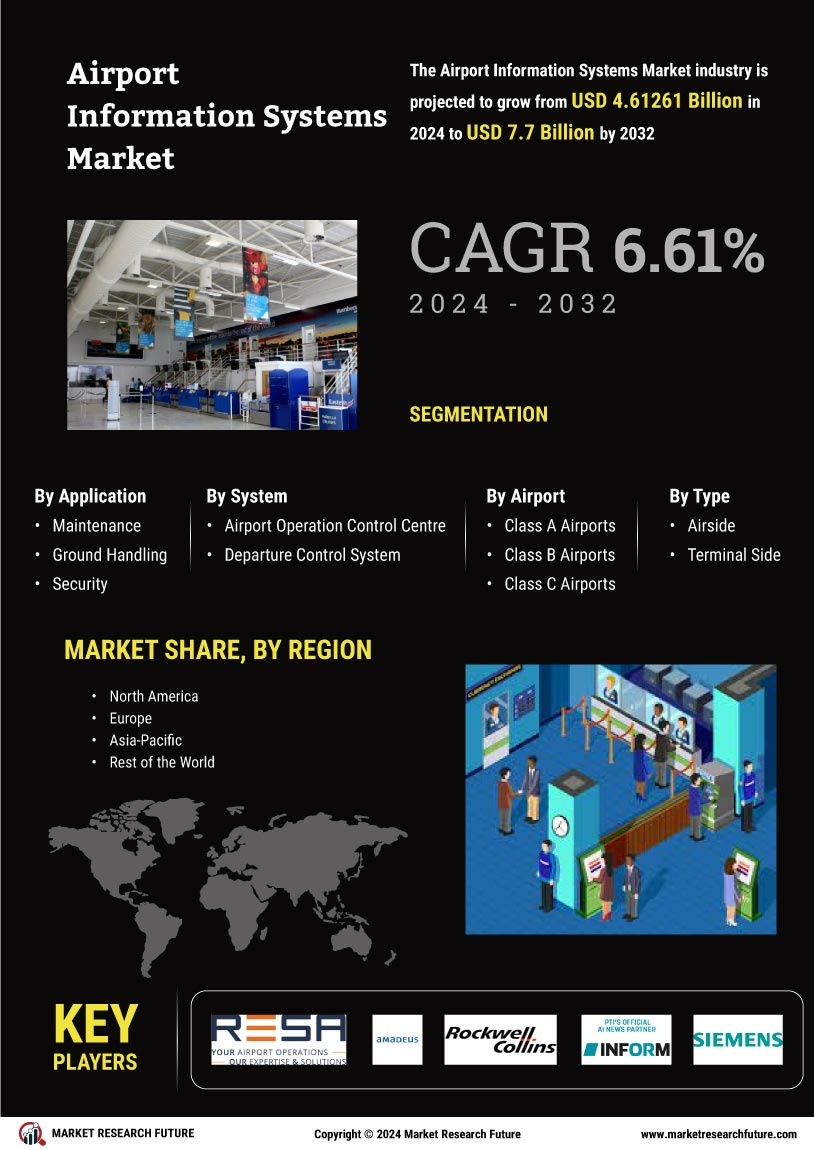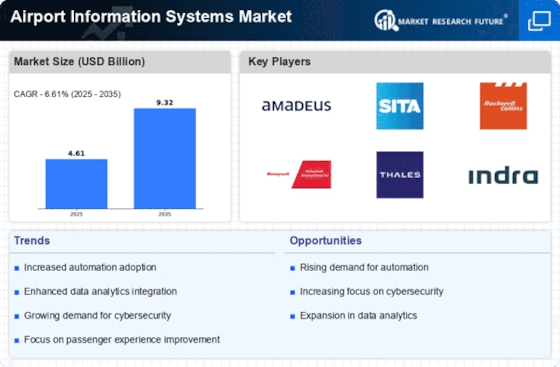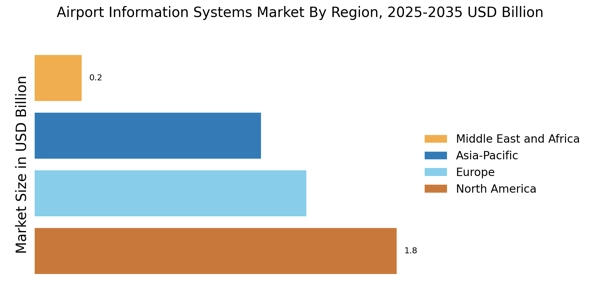Rise of Smart Airports
The concept of smart airports is gaining traction within the Airport Information Systems Market. Smart airports leverage technology to enhance passenger experience and operational efficiency. Features such as automated check-in kiosks, biometric screening, and real-time flight information systems are becoming standard. The market for smart airport technologies is expected to reach several billion dollars by the end of the decade, driven by increasing passenger expectations and the need for operational efficiency. This transformation is not merely about technology; it also involves rethinking airport design and operations to create a seamless travel experience. As more airports adopt smart technologies, the competitive landscape of the industry is likely to evolve.
Focus on Sustainability
Sustainability has emerged as a pivotal driver in the Airport Information Systems Market. Airports are increasingly adopting eco-friendly practices and technologies to minimize their environmental impact. This includes the implementation of energy-efficient systems and the use of renewable energy sources. According to recent data, airports that prioritize sustainability initiatives can reduce operational costs by up to 30%. Furthermore, regulatory pressures and public demand for greener operations are pushing airports to invest in sustainable information systems. This trend not only enhances the airport's reputation but also aligns with global efforts to combat climate change, making sustainability a crucial aspect of future airport developments.
Increased Passenger Traffic
The Airport Information Systems Market is significantly influenced by the increase in passenger traffic worldwide. As travel demand continues to rise, airports are compelled to enhance their information systems to manage the growing number of travelers efficiently. Recent statistics indicate that passenger numbers are expected to reach over 10 billion annually by 2030, necessitating advanced systems for crowd management, security, and information dissemination. This surge in traffic drives investments in airport information systems, as stakeholders seek to improve operational capabilities and ensure a smooth travel experience. Consequently, the industry is witnessing a robust demand for innovative solutions that can accommodate this influx.
Integration of Advanced Technologies
The Airport Information Systems Market is experiencing a notable shift towards the integration of advanced technologies such as artificial intelligence, machine learning, and the Internet of Things. These technologies enhance operational efficiency, improve passenger experience, and streamline airport management processes. For instance, AI-driven analytics can predict passenger flow, enabling airports to allocate resources more effectively. The market for AI in airport operations is projected to grow significantly, with estimates suggesting a compound annual growth rate of over 20% in the coming years. This technological integration not only optimizes existing systems but also fosters innovation, making airports more responsive to changing demands.
Regulatory Compliance and Security Enhancements
Regulatory compliance and security enhancements are critical drivers in the Airport Information Systems Market. With increasing global security threats, airports are under pressure to implement robust security measures. This includes advanced surveillance systems, biometric identification, and data protection protocols. Compliance with international regulations, such as those set by the International Civil Aviation Organization, is essential for airport operations. The market for security-related information systems is projected to grow as airports invest in technologies that ensure passenger safety while maintaining operational efficiency. This focus on security not only protects travelers but also enhances the overall integrity of airport operations.

















